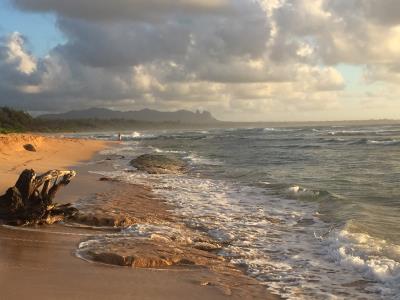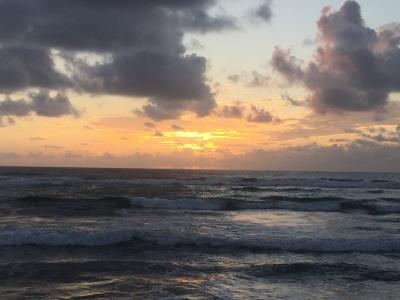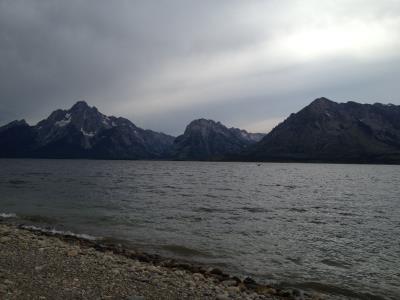




Wrangell St. Elias National Park – Image Gallery








Wrangell St. Elias National Park
Wrangell St. Elias National Park is the largest national park in the United States, encompassing immense glaciers, towering mountains, and diverse wildlife in the Alaskan wilderness.
Details
Wrangell St. Elias National Park
Wrangell St. Elias National Park is located in Alaska and is the largest national park in the United States, covering over 13 million acres. The park is named after the Wrangell and Saint Elias mountain ranges, which dominate the landscape with their towering peaks and glaciers.
Features
The park is home to nine of the 16 highest peaks in the United States, including Mount St. Elias, which is the second highest peak in the country. The park also features the largest connected system of glaciers in North America, with over 150 glaciers covering about 25% of the park's total area.
Visitors to the park can explore a variety of ecosystems, from dense forests to alpine tundra. The park is also home to a diverse array of wildlife, including grizzly bears, moose, wolves, and Dall sheep.
Ecological Significance
Wrangell St. Elias National Park is of great ecological significance due to its vast size and diverse habitats. The park serves as an important refuge for many species of plants and animals, some of which are found nowhere else in the world.
The park's glaciers play a crucial role in regulating local climate and providing freshwater to the surrounding ecosystems. The park also serves as an important breeding ground for migratory birds, including golden eagles and peregrine falcons.
Overall, Wrangell St. Elias National Park is a unique and valuable natural resource that must be protected and preserved for future generations to enjoy.
Wrangell St. Elias National Park
Points of Interest
1. Mount St. Elias
Mount St. Elias is the second highest peak in both the United States and Canada, standing at 18,008 feet. It is a prominent feature in the park and a popular destination for climbers and hikers.
2. Kennecott Mines National Historic Landmark
The Kennecott Mines National Historic Landmark is a well-preserved mining town that offers a glimpse into the area's mining history. Visitors can explore the old buildings and learn about the town's past through guided tours.
3. Root Glacier
The Root Glacier is a popular destination for visitors looking to experience the park's unique landscape. Visitors can hike on the glacier, take ice climbing lessons, or explore the ice caves that form within the glacier.
4. McCarthy
McCarthy is a small town located near the Wrangell St. Elias National Park that serves as a gateway to the park. Visitors can explore the town's historic buildings, visit local shops and restaurants, and learn about the area's history at the McCarthy-Kennicott Historical Museum.
5. Wrangell Mountains
The Wrangell Mountains are a stunning mountain range located within the park. Visitors can explore the area's rugged terrain, hike on numerous trails, and take in breathtaking views of the surrounding landscape.
Wrangell St. Elias National Park – Images

Description: Brachyramphus brevirostris, Wrangell-St. Elias National Park. NPS Photo by M. Reid
Image by Wrangell-St. Elias National Park & Preserve from Copper Center – CC BY-SA 2.0 – Wikimedia

Description: Panoramic view of Silver Lake at dusk, Wrangell–St. Elias National Park and Preserve, Alaska, United States.
Image by Diego Delso – CC BY-SA 4.0 – Wikimedia

Description: Silver Lake during dusk, Wrangell–St. Elias National Park and Preserve, Alaska, United States.
Image by Diego Delso – CC BY-SA 4.0 – Wikimedia

Description: Wrangell-St.-Elias-Nationalpark in Alaska mid May
Image by Islander61 – CC BY-SA 4.0 – Wikimedia

Description: I monti del parco dalla strada Richardson
Image by Enrico Blasutto – CC BY-SA 4.0 – Wikimedia

Description: I monti del parco dalla strada Richardson
Image by Enrico Blasutto – CC BY-SA 4.0 – Wikimedia

Description: I monti del parco dalla strada Richardson
Image by Enrico Blasutto – CC BY-SA 4.0 – Wikimedia

Description: Aerial view of a tall snowcapped mountain range December 1, 1978 and December 2, 1980: At 13.2 million acres, it is the largest park in the National Park System. The Chugach, Wrangell, St. Elias, and Alaska mountain rang es converge here in what is often referred to as the “mountain kingdom of North America.” The park has the continent’s largest assemblage of glaciers and the greatest collection of peaks above 16,000 feet, including Mount St. Elias.
Image by NPS – Public domain – Wikimedia
Search
Quick Links
New Blog SystemNational Parks (NEW)
National Forests (NEW)
National Monuments (NEW)
National Recreation Areas
State Parks
Bureau of Land Management (BLM) Areas
Wilderness Areas (NEW)
By The Numbers (NEW)
- Populations of all Countries (NEW)
Ideas - Stock Tickers
Running USA Debt Total